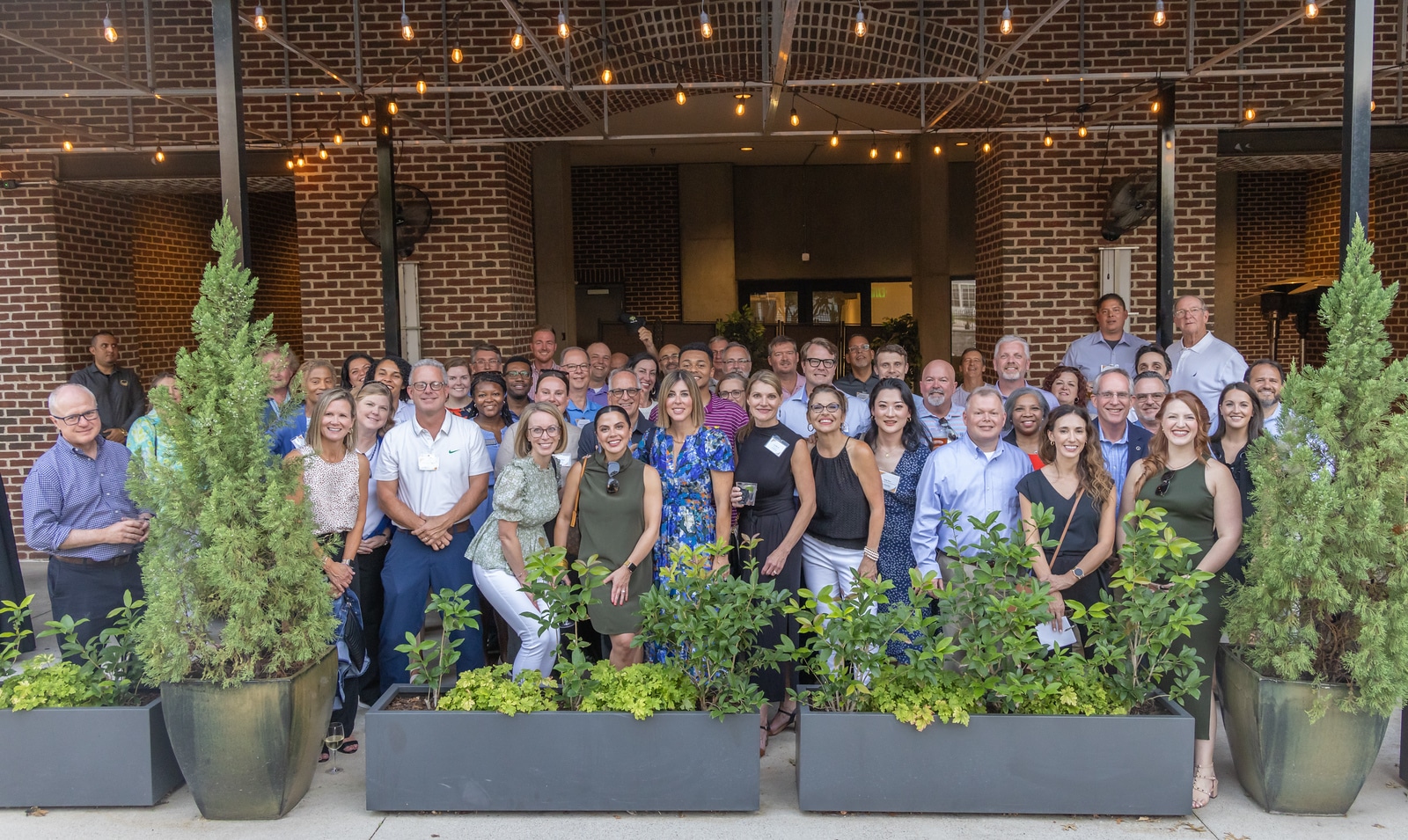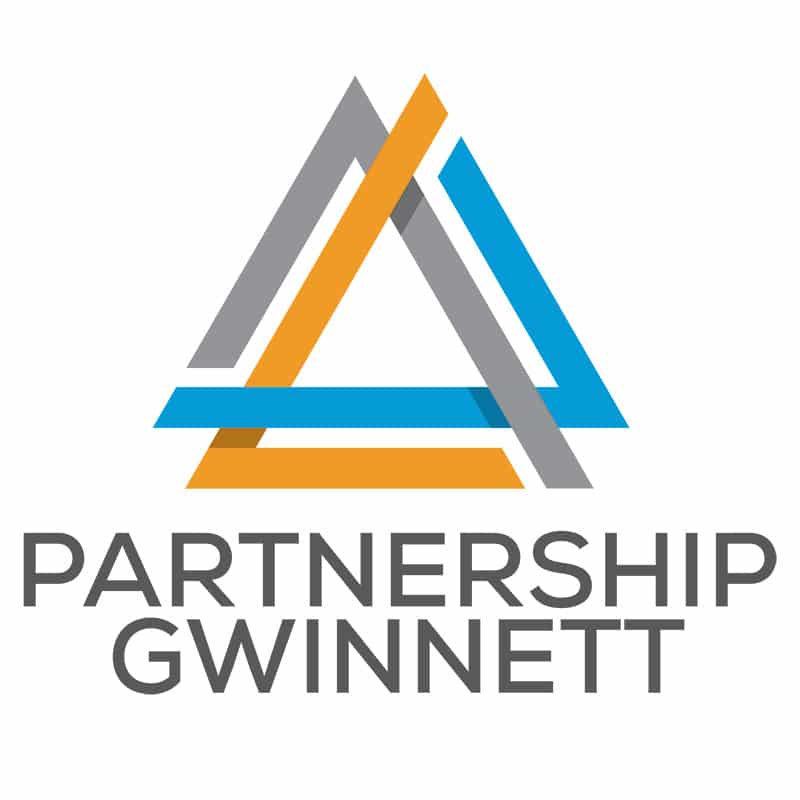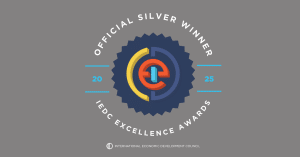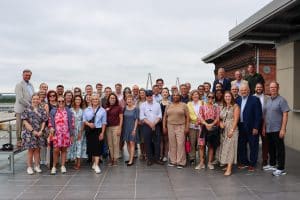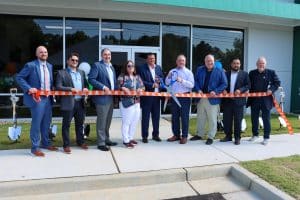Creating real, lasting change doesn’t happen overnight. In fact, community redevelopment often takes years, sometimes decades, of planning, investment, and collaboration. But one of the most powerful catalysts for that change? Seeing what’s possible.
That’s exactly why we host the Redevelopment Peer Tour each year.
This annual event brings together city planners, developers, elected officials, and economic development leaders from across the region to explore real-life examples of adaptive reuse, revitalized corridors, and mixed-use transformation projects throughout Gwinnett and beyond.
The goal is simple: inspire new ideas by learning from successful redevelopment projects.
At the Peer Tour, participants see opportunity. They take a look at successful, and sometimes not so successful, redevelopment projects that have been done. They walk away with fresh insights, proven examples, and peer connections to help shape their own communities’ futures.
Let’s take a look at the 2024 Redevelopment Peer Tour and the projects that we gained insight from.
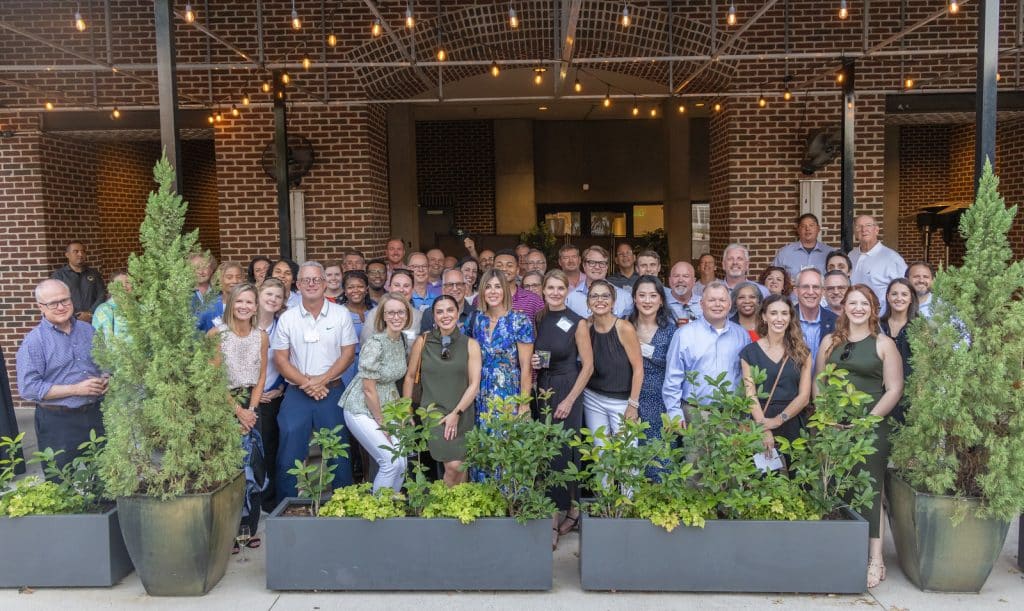
The group of 50+ attendees all joined to learn about redevelopment practices in Huntsville, GA
Tour Recap: What We Learned in Huntsville
The 2024 Redevelopment Peer Tour brought together over 50 attendees from across Gwinnett and metro Atlanta for a deep dive into Huntsville’s transformation strategies. Over two days, we visited five redevelopment sites, heard from more than 10 local and regional leaders, and saw firsthand how public-private partnerships, cultural placemaking, and strategic reinvestment are shaping the next chapter of urban growth in North Alabama.
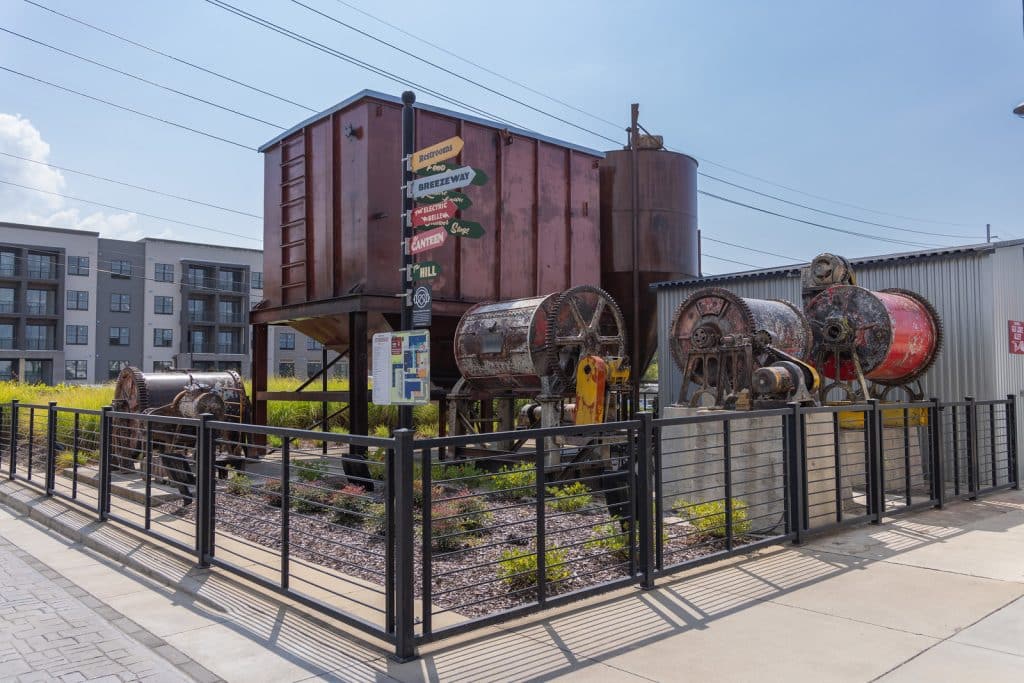
Alt text: Stovehouse in Huntsville, AL
Stovehouse
We kicked off the tour at Stovehouse, a former industrial facility turned into a thriving mixed-use campus with restaurants, offices, entertainment venues, and public gathering spaces. Danny Yancey, CEO of Stovehouse, shared how vision, risk-taking, and creative reuse helped turn a blighted site into one of Huntsville’s most vibrant destinations.
Key takeaway: Industrial properties can be reimagined into community anchors, if developers are willing to lead with place, not just product.
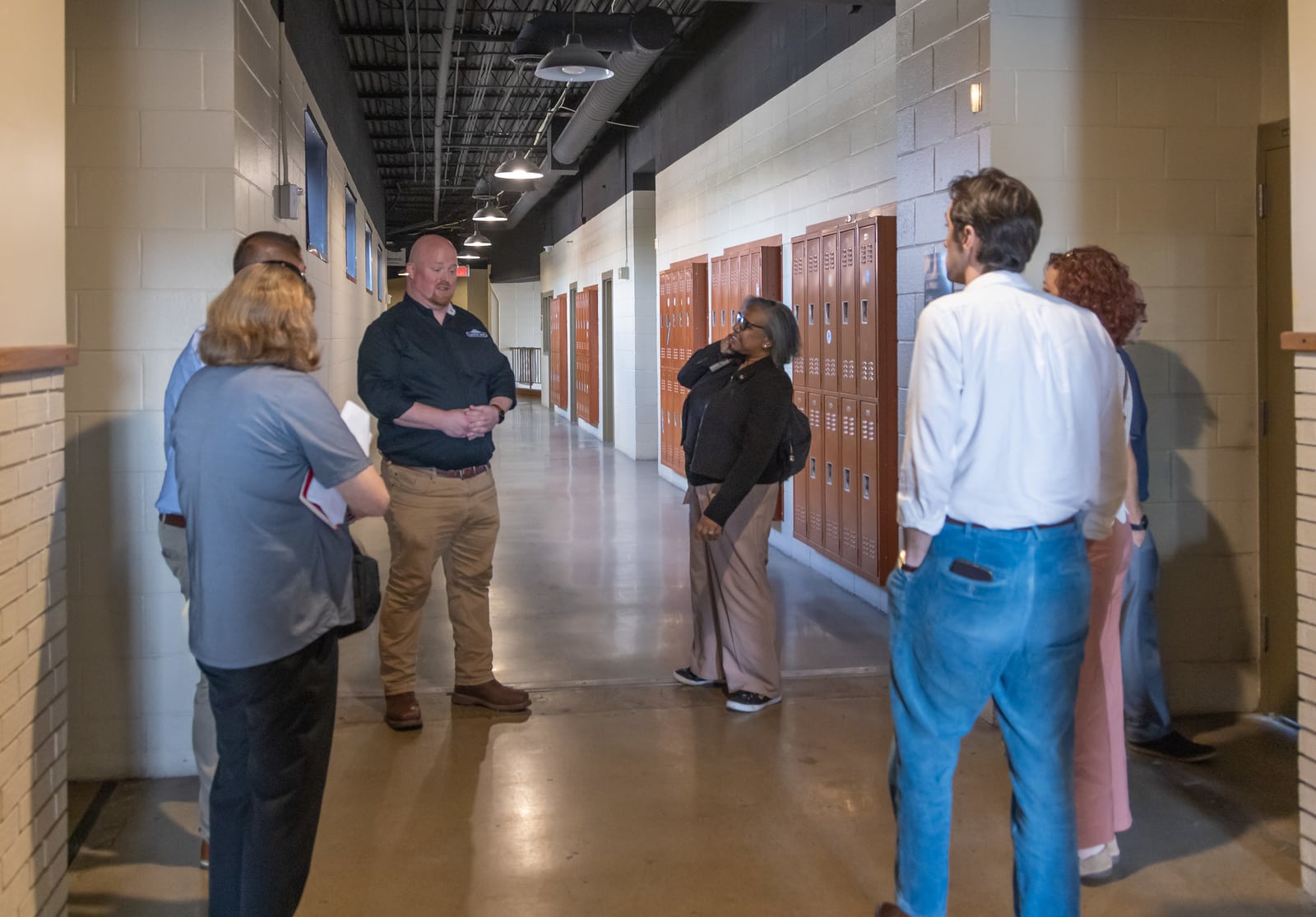
Alt text: Behind the scenes photos at Campus 805, a school house which was completely revamped and redesigned into retail, art, and event space
Campus No. 805
Once a high school, this site now hosts breweries, restaurants, art galleries, and event venues, all while retaining its educational roots through clever design. Cooper Schrimsher and Shane Davis, Director of Urban and Economic Development for Huntsville, explained how a shared commitment between the city and developer sparked this adaptive reuse success.
Fireside chat takeaway: Public-private partnerships thrive when both sides commit to long-term vision over short-term return.
MidCity District
With insight from Lindsey Pattillo Keane, we explored how the MidCity District is transforming a former regional mall site into a dynamic live-work-play environment. The area includes a massive amphitheater, retail space, apartments, and startups, illustrating how to activate suburban space in a modern economy.
What we saw: Big-box redevelopment takes time, but placemaking and programming are essential to keeping momentum alive.
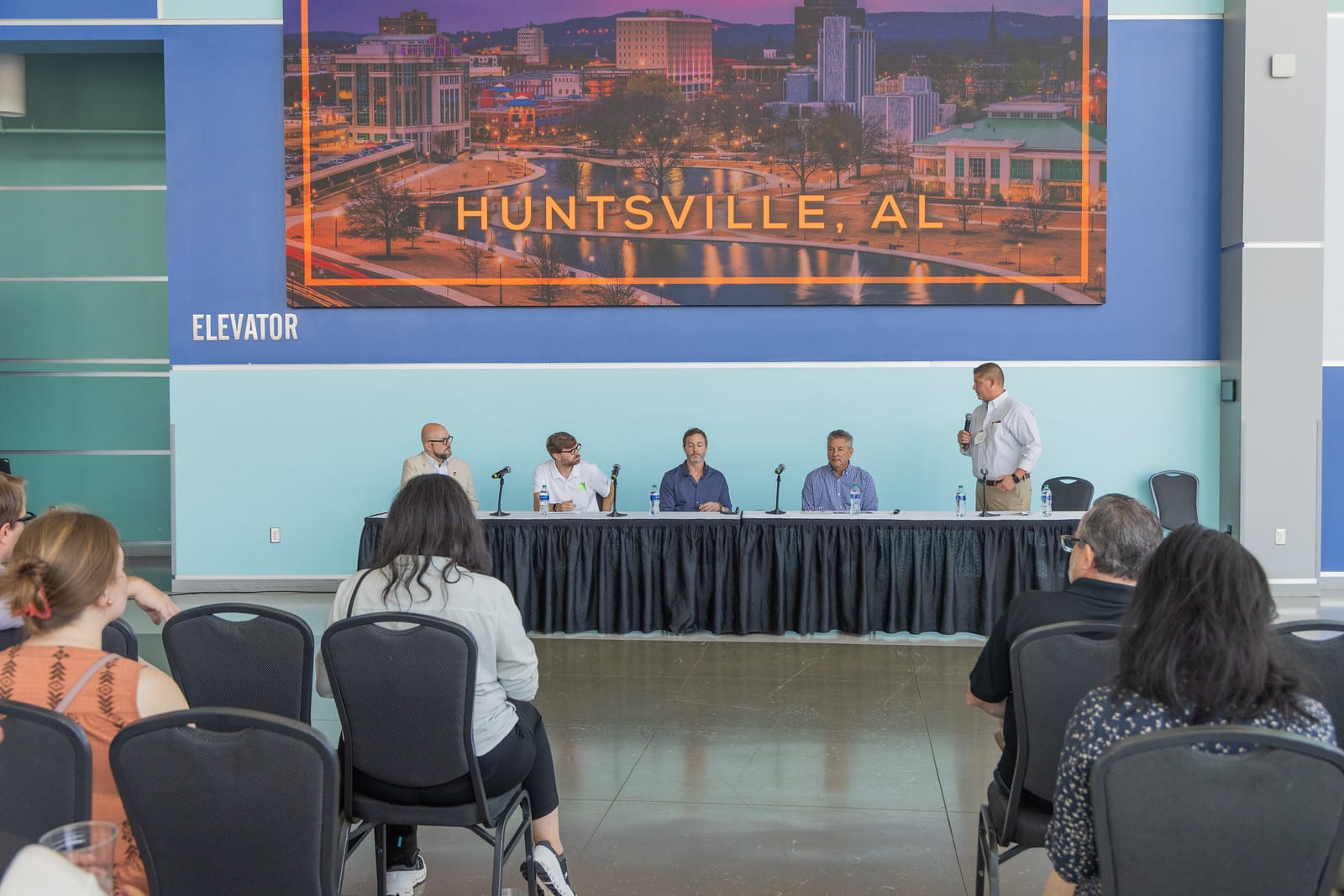
Alt text: Panel discussion at the Von Braun Center
Von Braun Center + Downtown Panel
A highlight of the tour was the panel at Von Braun Center, where leaders from Downtown Huntsville Inc., Crunkleton Real Estate, and the City of Huntsville discussed how anchor institutions can create a “halo effect” that drives growth far beyond their footprint.
Key message: Cultural and civic hubs are economic drivers when paired with intentional development planning.
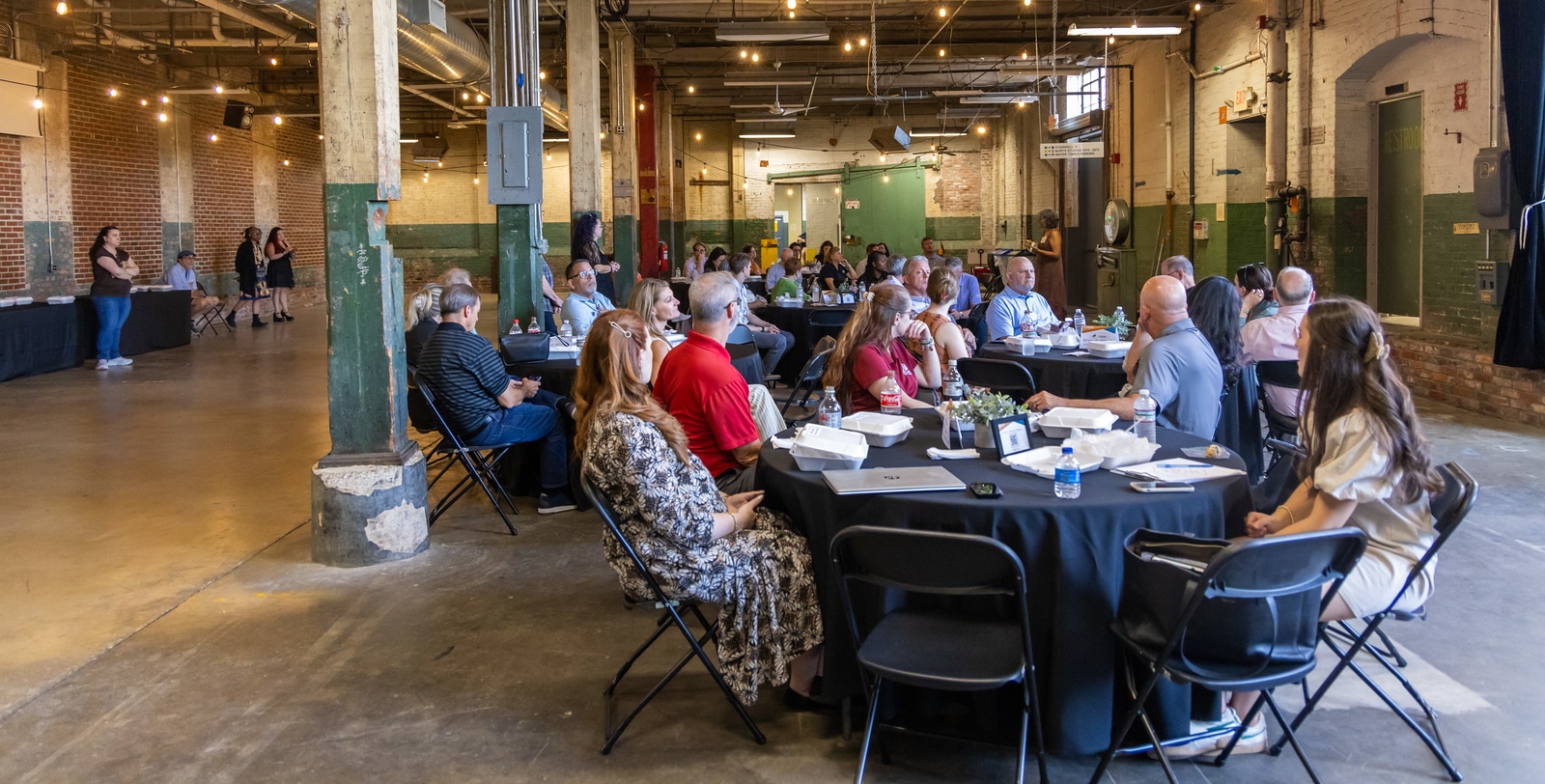
Alt text: The Redevelopment Peer Tour Group learning more about Lowe Mill Arts and Entertainment
Lowe Mill Arts & Entertainment
We ended the tour with a visit to Lowe Mill, a former textile mill that now houses over 150 artists, makers, and small creative businesses. Executive Director Marcia Freeland shared how the space has become a regional destination for the arts while preserving Huntsville’s industrial history.
Closing lesson: Redevelopment isn’t just about buildings, it’s about identity, creativity, and what makes a place magnetic to people.
Final Takeaways
The Redevelopment Peer Tour reminded us that bold redevelopment requires:
- Vision that extends beyond buildings
- Trust between the public and private sectors
- Willingness to try and sometimes fail
- Commitment to activating underutilized space in ways that serve both people and place
As Gwinnett continues investing in redevelopment across our county, we return from Huntsville with not only ideas, but renewed energy and a broader network of partners.
Whether you’re reimagining a strip mall, reviving a historic corridor, or building from scratch, we hope the 2024 Redevelopment Peer Tour showed you that great places are built through shared vision and sustained by public trust and smart design.
Special Shout Out
A very special shout out to the 2024 Redevelopment Peer Tour Sponsors who helped make this trip possible: Evermore CID, Gorman Construction, City of Suwanee, Garrard Group, Geo Hydro, JWB Realty, Gwinnett Place CID, and the City of Peachtree Corners.
Looking to stay connected with all things redevelopment? Be sure to join us at the 2025 Metro Atlanta Redevelopment Summit on November 6! Register here.
